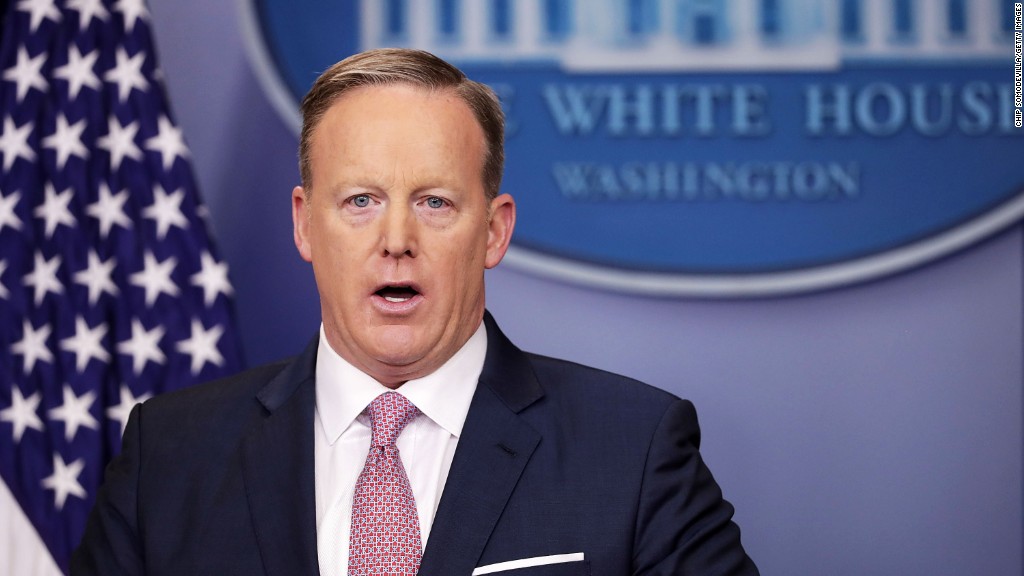
Battle lines are being drawn over the border adjustment tax.
It's never been tested, and it doesn't even exist in a legislative bill yet -- only in a spare proposal from House Republicans. But it would have big implications for business, and the forces that support and oppose it are already staking their ground.
The idea is to stop subsidizing imports of products and materials into the United States, and stop penalizing the exports of U.S.-made products and materials to other countries.
Opponents say it will hurt American consumers, and advocates say it will keep businesses from leaving the United States.
Just this week, a coalition called Americans for Affordable Products, representing retailers including Walmart, Macy's, Nike, Gap and Crate & Barrel, came out against it. They say a 20% border adjustment tax on imports would make essentials like clothes, food, medicine and gas more expensive.
"Consumers shouldn't bear the burden of this new tax while some corporations get a tax break," the group said.
On the other side is a group calling itself the American Made Coalition, representing companies from diverse industries including software, agriculture, pharmaceuticals and movies.
They argue that the current tax system effectively subsidizes imports, and should be "replaced with one that restores the United States' competitive advantage in the foreign marketplace."
Generally speaking, American companies that import goods are opposed to a border adjustment tax because it would eliminate the tax deduction they can take today for the cost of those imports. For instance, Crate & Barrel gets a tax break on the materials it imports to make part of the rattan chair it sells in the United States.
That would effectively raise a company's tax burden, and it would probably pass that on to consumers through higher prices.
U.S. companies that export, by contrast, tend to favor a border adjustment tax because they would no longer have to pay U.S. income tax on their sales. That, in turn, means they can lower their prices and become more attractive in foreign markets.
Related: A plain-English guide to the border adjustment tax
But the thing is, the effects of a border adjustment tax on trade and prices are supposed to be neutral. For that to happen, the U.S. dollar would need to strengthen considerably and quickly. Economists expect that to happen because demand would go up for U.S. products overseas and demand would go down for imported products in America.
A stronger dollar would give Americans more buying power, so that would offset any pain from the price hike on imports. And it would temper demand for exported products, because they would become more expensive to foreigners, despite the price drop.
The border adjustment tax gets positive reviews from wonkish policy experts. Among other things, they believe it will remove the incentives in today's code for companies to move overseas to lower their U.S. tax bill.
But even the wonks are still working through the implications of the change because it has never been tried before.
The concept of a stronger dollar offsetting the effects of price changes induced by border adjustment is something "non-economists should not be expected to grasp intuitively," wrote Martin Sullivan, chief economist for Tax Analysts, which publishes tax policy news and analysis.
Well, that's a relief.
But the difficulty in understanding the benefits of a border adjustment tax may prove its fatal flaw when it comes to attracting enough support in Congress and with President Trump to include it in the next version of tax reform. (Even without a border adjustment tax, tax reform is likely to take some time to come together.)
The tax's two main Republican proponents, House Speaker Paul Ryan and House Ways and Means Committee Chairman Kevin Brady, get high marks for pushing the envelope. But Jeremy Scott, editor in chief of commentary at Tax Analysts, thinks it may be time to put the idea aside for now.
"If House Republicans were serious about enacting a completely different form of corporate taxation in 2017, they should have been holding hearings and drafting language in 2016," he wrote. "Ryan and his supporters did neither."


